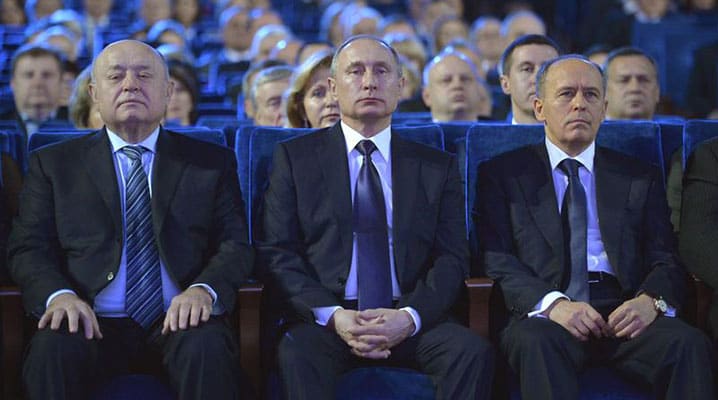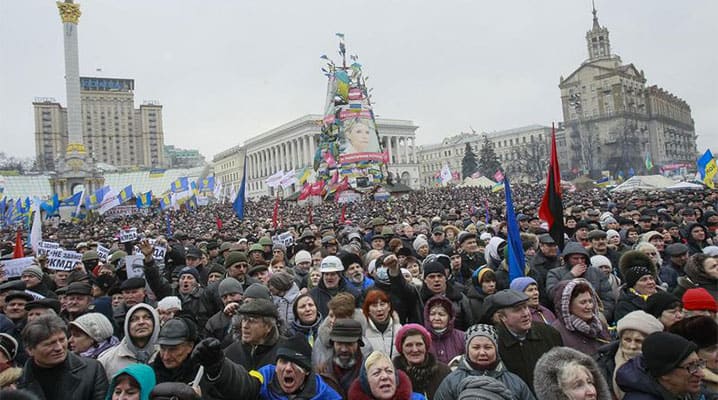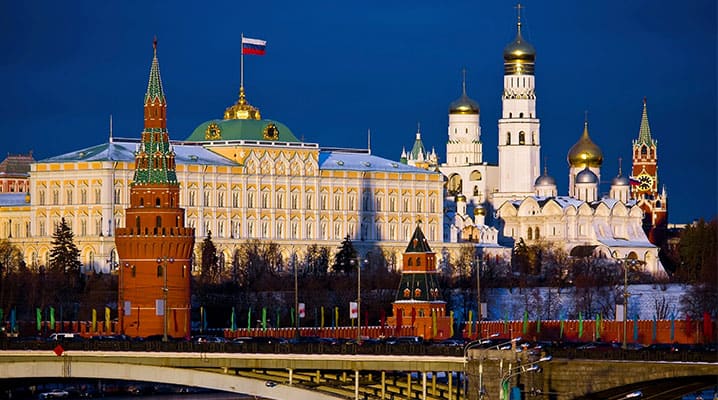It is inevitable and understandable that we rely on mirror-imaging when looking at Russia’s security and intelligence services. The problem is that – however much there may appear to be meaningful comparisons on paper – in terms of their missions, interactions and mindsets, they are on a wartime footing.
The Russian Foreign Intelligence Service (SVR) is broadly comparable to agencies such as the US Central Intelligence Agency (CIA), Britain’s Secret Intelligence Service (SIS), commonly known as MI6, and France’s DGSE. Its Main Intelligence Directorate (GRU) is a military foreign intelligence service, again like so many NATO counterparts. The Federal Security Service (FSB) is a domestic security and counter-intelligence agency – while it is rather more carnivorous than the US Federal Bureau of Investigation (FBI), Germany’s BfV or Italy’s AISI, at a pinch one might think the analogy holds.

President Vladimir Putin – a former officer of the Soviet Union’s KGB and then director of the Federal Security Service (FSB) – regards the security service personnel as among his closest allies and most useful instruments. Here, he is seated between Director of Russia's Foreign Intelligence Service Mikhail Fradkov (left) and Federal Security Service Director Alexander Bortnikov (right), celebrating the Day of Security Service staff in Moscow, 19 December 2015. © REUTERS
But, if anything, a much better way of thinking of these agencies is to compare them to the British Special Operations Executive or US Office of Strategic Service of the Second World War. For they are engaged in far more than just collecting information to inform policy, and with a bias towards aggressive risk-taking that is actively encouraged by the Kremlin.
The Russian intelligence system
Russia’s security and intelligence services operate in a rather different political context that the West’s, and this gives them a radically different character. President Vladimir Putin – a former officer of the Soviet Union’s KGB and then director of the FSB – clearly regards the so-called Chekists (after the Cheka, the Bolsheviks’ first political police) as among his closest allies and most useful instruments. In 2015, on the Day of Security Service Personnel, he called them “strong and courageous people, true professionals who are reliably protecting Russia's sovereignty and national integrity and the lives of our citizens.”
As a result, they are at once coddled, competitive and corrupt. They are coddled in that throughout the Putin years they have seen their budgets and powers steadily increase. Furthermore, their very status within the political process has increased. Since around 2014, if not before, the indications are that ambassadors and indeed the foreign minister have much less authority to block operations (or even be informed of them in advance) than before.
This comes at a price, though. Their perks are contingent on their ultimate master and patron, Putin, regarding them as being useful. The GRU, for example, spent years in disfavour because of their perceived failings during the 2008 Georgian War. The agencies have overlapping responsibilities (even the FSB is increasingly involved in foreign operations) and compete fiercely and ruthlessly to outshine the others. This is a carnivorous, cannibalistic system – as the former electronic intelligence service FAPSI discovered when it was devoured, largely by the GRU and FSB.
As a result, they rarely cooperate well but, on the other hand, will take chances and demonstrate aggression and imagination. They also, as will be discussed below, compete to tell the Kremlin what it wants to hear, which is perhaps the most dangerous outcome of all.
At the same time, the relative impunity of the security services, as well as their broad powers, has contributed to an endemic problem of corruption. This even extends to operational affairs, from skimming funds intended for Donbass warlords to using eavesdropping capacities to help a ‘friendly’ company win a contract.
Ready for war…
Whatever individual officers may feel, on an institutional level, the intelligence services share Putin’s belief that Russia faces a genuine threat from the West. This is existential not so much in geographic terms (even though some hardliners share Security Council Secretary Nikolai Patrushev’s view that the United States “would much rather that Russia did not exist at all – as a country”) but politically and culturally.

The Russian intelligence services share Putin’s belief that Russia faces a genuine threat from the West. Evidence notwithstanding, the hand of the CIA is seen in risings against pro-Russian authoritarians, such as Ukraine’s 2013-14 ‘Maidan protests’. © REUTERS
Evidence notwithstanding, the hand of the CIA is seen in risings against pro-Russian authoritarians, such as Ukraine’s 2013-14 ‘Maidan protests’. Adverse judgements in international tribunals are regarded as rigged. The clear hunger within a portion of the Russian population for genuine democracy and rule of law are considered proof of a ‘soft power’ attempt to destabilise the existing regime; one former Russian security officer characterised it to me as “regime change by stealth.”
In this context, the security services regard themselves as already at war, and operate accordingly. Three basic premises apply. The first is that any reverses for the West are to Russia’s implicit advantage. The second is that their role is concrete: they do not just gather information, they advocate policies and carry out active measures routinely. Finally, they seem to believe it is better to seize an opportunity than avoid a mistake. Western, peacetime agencies are rightly risk averse, well aware of the potential dangers, political or otherwise, in badly judged actions. Their Russian counterparts are far more adventurous; it is more dangerous for an officer’s career to be regarded as unwilling to take a chance than to trigger international opprobrium.
Put together, these help explain the unprecedentedly high tempo and visibility of Russian active measures. Within their self-declared sphere of influence (the former Soviet states, with the exception of the Baltics), they are especially aggressive, whether staging terrorist attacks in Ukraine or actively interfering with the political process in Moldova. Even in the West, they are becoming increasingly visible. In the past year, for example, they have interfered with the US presidential elections, barraged Europe with divisive disinformation, and by all accounts staged an abortive coup in Montenegro.
…but political war
If Russia’s intelligence services consider themselves to be at war, what does ‘war’ mean in this context? Although there is the need to be ready for unforeseen dangers and changing intents, there is no real evidence that Putin has territorial ambitions beyond those nations he has already identified as within Russia’s sphere of influence. Essentially, this means the countries of the former Soviet Union, with the exception of the Baltic States.
Rather, he regards NATO and the West as threats in three ways. First, they are obstructing Moscow’s efforts to ignore or undermine the sovereignty of states within that sphere of influence. Ukraine, Georgia and Belarus are the particular bones of contention at present. Second, in their commitment to democracy, transparency and the rule of law, they represent a normative challenge to the Russian model. Finally, they are, he believes, seeking to subvert his regime’s authority within Russia itself.

Russia’s security and intelligence services are engaged in far more than just collecting information to inform policy, and with a bias towards aggressive risk-taking that is actively encouraged by the Kremlin.
His aim is thus to deter the West, or at least to divide, distract and dismay it to the point that it is unable or unwilling to get in his way. This is the primary goal of the active measures conducted against NATO states by the Russian intelligence agencies.
This is often characterised as hybrid war, but it is crucial to appreciate that there are two parallel approaches within Russian strategic thought. There is the military model, often mischaracterised as the ‘Gerasimov Doctrine’ after the present Chief of the General Staff, who wrote an article in the niche military publication Voenno-promyshlenny kurer in early 2013 that outlined current Russian thinking. (However, it is not a doctrine but an observation about the changing nature of war, and it predates Gerasimov.) This model sees the use of non-kinetic means as a crucial way to prepare the battlefield before the deployment of troops, as in Crimea and the Donbass.
But within Russia’s national security establishment there is also a belief that the same non-kinetic instruments – subversion, corruption, disinformation, misdirection – can accomplish the desired results without the need for any shots being fired. This ‘political war’ model is currently in favour because it reflects the degree to which NATO and the West are stronger by every objective index, yet as a constellation of democracies vulnerable to the kind of measures a ruthless authoritarianism is able to employ.
Russia’s intelligence services are the front-line soldiers in Moscow’s non-kinetic political war on the West. As such, no wonder Putin continues to hold them in such regard. Yet for all that, they may also prove to be his Achilles heel. Their aggressive interference in the West has not gone unnoticed and has generated a political backlash in Europe and North America. But in many ways they pose a more serious risk in Moscow. The competitiveness that he has fostered, combined with the way he himself is clearly increasingly unreceptive to having his ideas and prejudices questioned, now also means that they vie to tell him what he wants to hear. As a result, Putin has already made serious and costly mistakes, such as his intervention into the Donbass, which he was assured would lead to a quick capitulation by Kiev. The scope for further, even more serious errors are very real. Intelligence agencies ought to be able and willing to speak their ‘best truth’ to power; when that is no longer the case, then policy-making risks becoming erratic and we are all in trouble.
